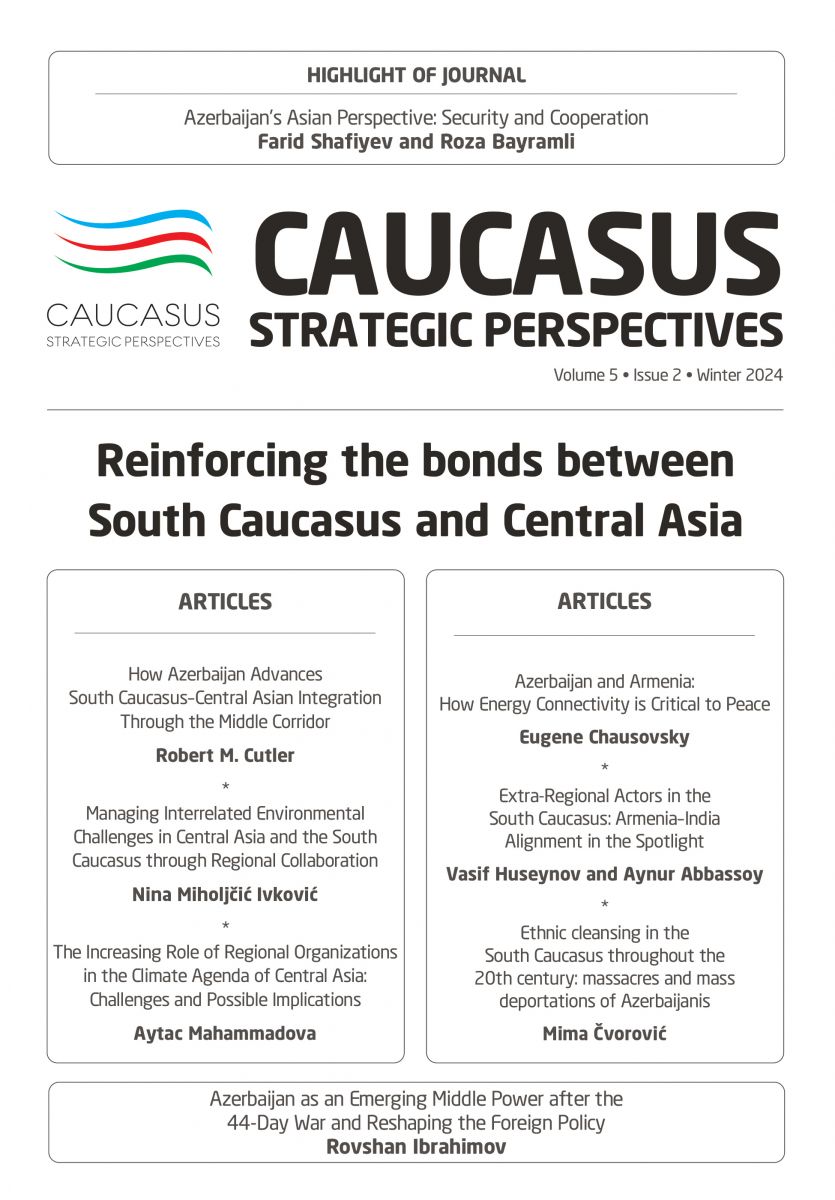Azerbaijan’s Asian Perspective: Security and Cooperation
Evolving geopolitical tensions among global powers are exacerbating security and economic issues worldwide, challenging the post-Cold War international order, and exposing the shortcomings of international law. The Caspian region, pivotal for trade and security, faces heightened pressures as the major powers attempt to sway the region’s countries into exclusive alliances. Azerbaijan’s foreign policy prioritizes regional autonomy, upholding sovereignty, and enhancing multilateral partnerships to safeguard its independence and security. Following the Second Garabagh War, Azerbaijan has bolstered regional cooperation, notably with Central Asia, to strengthen ties through shared cultural and strategic interests. Azerbaijan’s role in multilateral organizations, such as the Shanghai Cooperation Organization (SCO), the Conference on Interaction and Confidence-Building Measures in Asia (CICA), and the Organization of Turkic States (OTS), positions it as a significant regional player. Investments in transit infrastructure, such as the Middle Corridor and the ‘Digital Silk Way’ project, enhance Azerbaijan’s role as a Eurasian logistics hub connecting Asia and Europe. Azerbaijan’s deepening partnerships within these frameworks reflect its commitment to regional stability, economic resilience, and a balanced foreign policy that fosters collective security and prosperity across Asia and beyond.
Latest news
- 12/27/2024 Call for Submissions-Caucasus Strategic Perspectives, Volume 6, Issue 1, Summer 2025 668 views
Popular articles
- 07/18/2022 The Russia–Ukraine War: Perspective of Azerbaijan 4325 views
- 10/14/2020 The Non-Aligned Movement: In Pursuit of Validity and Relevance in the Contemporary Global Order 3307 views
- 10/14/2020 Vicious Circle of the South Caucasus: Intra-Regional Conflicts and Geopolitical Heterogeneity 3291 views
- 10/14/2020 Relevance of Non-Alignment for Azerbaijan’s Foreign and Security Policy 3020 views





